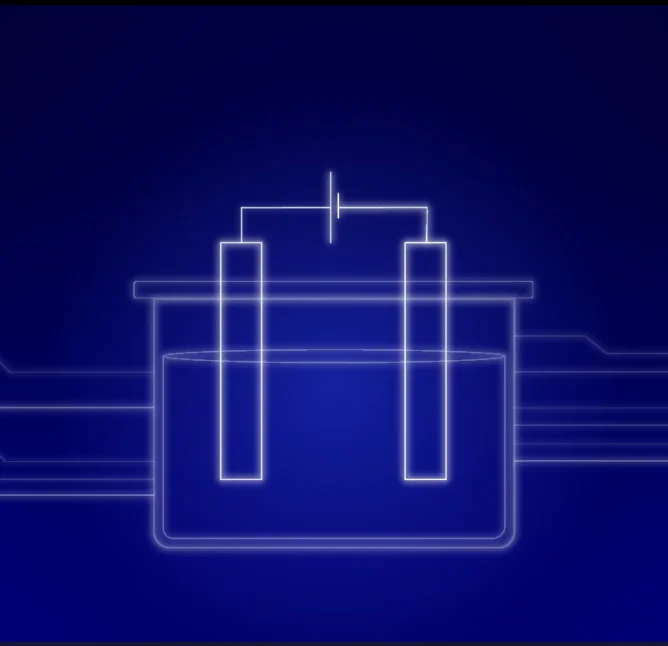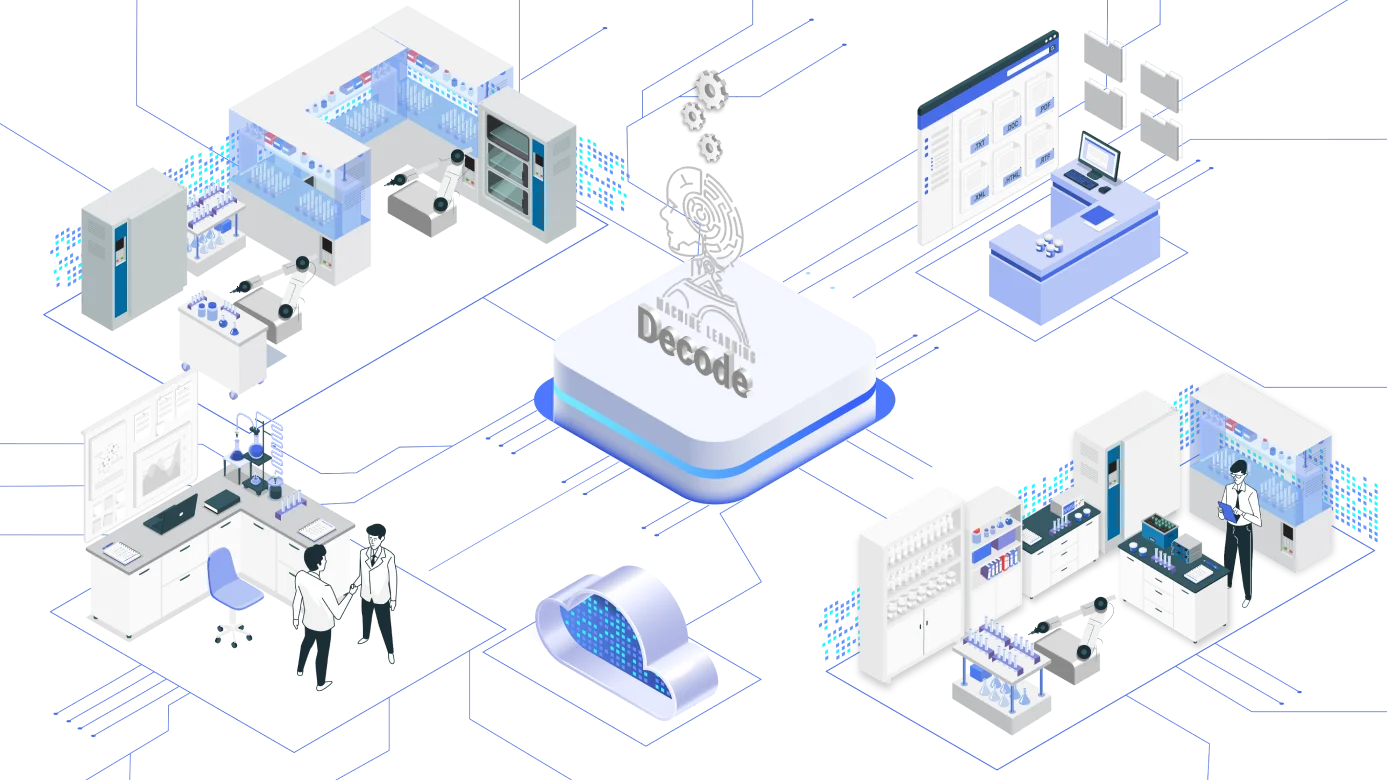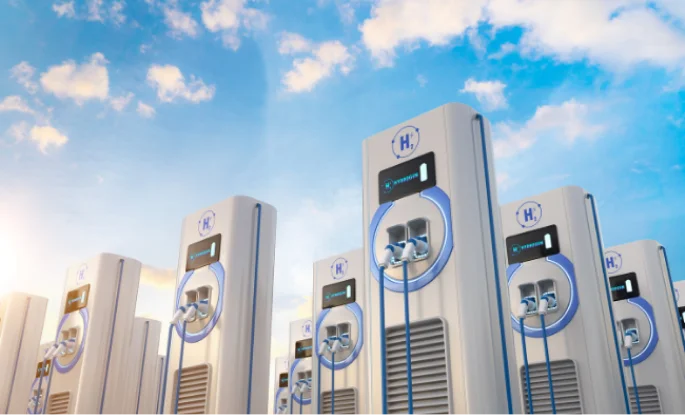
The Future of Green Energy Innovation: Introducing DECODE
DECODE is a collaborative project funded by the European Commission coordinated by Forschungszentrum Jülich (FZJ). It aims to create and demonstrate the first of its kind decentralised cloud-based platform to align efforts of multiple laboratories on a common goal: accelerating the design and integration of energy materials.

OUR VISION AND MISSION
Accelerating Europe’s Green Transition: DECODE for Integrated Clean Tech Innovation
The discovery and mobilisation of highly performing, affordable, and environmentally benign materials for clean technologies is an essential element in Europe’s transition to a green and sustainable future. This requires accelerated development and strategies that are geared towards eradicating geopolitical threats and ensure supply chain security.
However, despite the urgent need for breakthroughs and innovation, the clean tech sector faces major challenges due to its slow pace of development. Laboratories around the world still operate in silos, delaying collective progress towards cleaner materials and technologies.
To overcome this situation, DECODE will create and demonstrate an advanced pan-European future lab concept that connects multiple labs to accelerate the integration of energy materials into green hydrogen technologies.
SCOPE AND OBJECTIVES

Electrochemical energy devices are intricate systems comprised of various materials and components organized into a multilayer assembly. Each layer within these devices must possess distinct properties and fulfill specific functions to ensure optimal performance. The complexity of these devices underscores the need for precise engineering and material selection, as the effectiveness of each layer directly impacts the overall efficiency and reliability of the device.
Achieving disruptive innovation in the field of energy technology necessitates a high degree of integration across different scales and environments. This involves transitioning from detailed examinations of sub-component materials and basic model systems to the comprehensive assembly of a complete device. The integration process also spans across different research settings, where data flows and analyses from a diverse array of methods and tools are synthesized. This seamless connectivity between scales and laboratories is crucial for advancing the development and optimization of electrochemical energy devices.
Moreover, the dynamic nature of disruptive innovation requires continuous advancements in both characterization and modeling techniques. The ability to connect and interpret data from various sources enhances the understanding of device performance and facilitates the development of more efficient and reliable energy solutions. By bridging the gaps between sub-component studies, device integration, and cross-laboratory data analysis, researchers can drive significant progress in the energy technology domain, paving the way for groundbreaking advancements.
DEMONSTRATION
To test and demonstrate the scale-to-scale an lab-to-lab integration needed, DECODE will carry out use case studies.

Revolutionizing Polymer Electrolyte Fuel Cells: Integrating Fluorine-Free Ionic Polymers for Next-Gen Performance
The demonstration will focus on a fundamentally well-understood technology, with extensive data sets existing, viz. polymer electrolyte fuel cells (PEFC). The specific use case for this technology will be to integrate novel fluorine-free ionic polymers into catalyst layers of PEFC.
From Fuel Cells to Water Electrolysis: Pioneering Fluorine-Free Polymer Integration Across Electrochemical Technologies
The experience gained from the demonstration on PEFC technology will be transferred to other technologies (exploratory cases), including polymer electrolyte water electrolysis as well as, in the longer run, related electrochemical energy technologies that use anion exchange membranes.
METHODICAL INNOVATIONS
To test and demonstrate the scale-to-scale an lab-to-lab integration needed, DECODE will carry out use case studies.
1 – DECODE FABRIC – for connecting and mapping tools
Develops a framework for the collection and evaluation of existing methods and tools available and/or under development by DECODE partners.
EXPAND TO READ MORE
2 – DECODE IRL
Implements a scoring system to assess the utility of methods and tools in modeling and characterisation.
EXPAND TO READ MORE
3 – DECODE CPU – an end-to-end digital agent orchestrating the entire workflow
Coordinates access and times the usage of modelling and characterisation methods and tools for a specific materials integration challenge.
EXPAND TO READ MORE
EXPECTED RESULTS
To test and demonstrate the scale-to-scale an lab-to-lab integration needed, DECODE will carry out use case studies.
- $Develop and field-test methodologies of multi-scale and multi-technique characterisation and modelling
- $Prioritise and tackle critical gaps in materials-related knowledge
- $Develop a modular cloud-based platform for AI-based workflow orchestration, assessment, and recommendation of modelling & characterisation methods and tools.
- $Demonstrate and validate the DECODE decentralised platform.
- $Ensure the exploitation of the project results towards alternative materials feedstocks and a circular economy.
